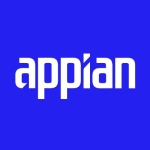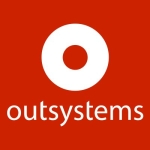We are a strategy consultancy for someone who is looking for a Low-code No-code platform for the utilization of digitized service processes. We can determine if Pega BPM is the right fit for them because it can be deployed on the Cloud,on-premise, Kubernetes, and Dockers. We are in discussions with customers with many other solutions, such as OutSystems and Mendix. From a strategic point of view. We're not going to implement only one service tomorrow.
We mostly use European providers. We do not use hyper scalers because of privacy concerns, such as Google, Microsoft, and Amazon.
We use Pega BPM for simple service management processes. We are a consultancy that works for the government. We look at public services and how public services can be supported. These new types of workflow technologies where you to have end-to-end case management. They can be used for public services processes that are created on these platforms.
Pega BPM could improve the artificial intelligence capabilities because they are always valuable and case management for all types of industries is important. Additionally, the reporting performance management capabilities could be better because you want to have insights into how your processes are working, such as Cloud protection. The whole range can be better. However, the platforms are improving every year, they are on the right track.
In the next release of Pega BPM, they should add more ways to do the customer interaction fields in the portals.
I have been using Pega BPM for more than one year.
Pega BPM is scalable. If you have larger data models, for example, thousands and millions of transactions, they have their limits. Larger data models need to be improved. It's not only technically scalable, for instance, if one organization develops a solution built on ServiceNow or Pega BPM, how can you transfer the solution to the next organization that has the same platform. They have a marketplace on most of the platforms where third-party vendors can show their services. For a public organization, if you develop a small application, the next town could use it the same way. How to transfer easily from one to another one. It might not be a relevant case for private companies because you are in competition. There's no need to give away knowledge. However, in the public domain, it's a different case but it's very special, nothing in general.
The technical support of Pega BPM is very good.
If you work with any of those platforms such as Pega BPM, Mendix, OutSystems, or ServiceNow, they have different sweet spots. You should always think about what you really want to accomplish. What do you want to do with those platforms, you have to choose between Pega BPM or ServiceNow. You have to decide what is the right provider, and it is not one-fits-all.
The platforms are used to be faster. You have citizen developers who can build faster solutions but in the end, if you have no governance, no strict rules on how to use it there can be problems. For example, to put out a fire somewhere, you can do it in 10,000 different ways. If you don't have strict rules, how to do it, you might end up with a crazy solution that you can't manage over time, such as the maintainability of those solutions or of the platform ecosystem in general. You need strict governance or rules of what to do and how to do it. Otherwise, it will be like a crazy zoo of different solutions and you don't know what it is, how they work, or why they work. If everyone is able to use a solution but they are not using it in the same way it can be improper and this is why governance and rules need to be applied.
I rate Pega BPM a seven out of ten.
Pega BPM is good, it is not the worst solution you can find on the market. However, it depends on what you're looking for. It has to meet the use case that you are looking to solve. Other solutions, such as OutSystems and Mendix, they're more open-minded, you can do whatever you want to do, but they don't have strong case management. In my industry, it's more or less, very simple service processes.


















